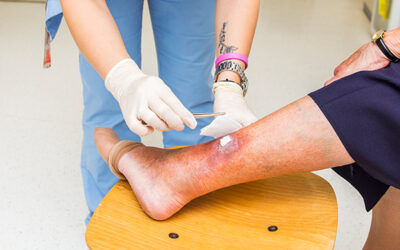Anxious? Worried? Stressed? Panicked? You are not alone.
In the time of COVID-19 with rapid changes to our normal routines, significant numbers of people are experiencing a loss of sense of control and safety in their lives. The world as we know is unrecognizable and the future uncertain. For many this results in a general sense of nervous tension. However, some people are experiencing feelings of panic, or a sense of impending doom. What these people and millions of other Australians are living with is anxiety.
What Are Anxiety Disorders?
Anxiety disorders are the most common of all mental disorders. Australian research shows that four in ten people experience an anxiety disorder at some stage in their lives, while one in ten are living with an anxiety disorder at any one time. Given this prevalence, anxiety was already a significant mental health issue in the community, one that has been exacerbated by the impact of the pandemic.
Recognising Signs of Anxiety Disorder
It is important to recognise that anxiety is a normal reaction when we feel unsafe. Often referred to as the flight or fright response, it is a mechanism we have to protect ourselves from danger or threatening situations. Normally, our anxiety tends to dissipate when a threat has passed. However, in the current pandemic, for many people, everyday situations can be perceived as dangerous or threatening, and lead to people experiencing anxiety repeatedly throughout their day. Over time, constant anxious feelings can lead to the development of an anxiety disorder, panic attacks, phobias, and many other conditions such as depression, physical health problems, eating disorders, drug and alcohol dependency or suicidality.
What are the Impacts of Anxiety Disorder?
The cost to the community is enormous, while the impact on the individual is devastating and disrupting to the personal, emotional, social, physical and occupational areas of their life. Despite the fact the anxiety symptoms can be effectively treated, most people with anxiety do not access the support that can help them. Unfortunately, the symptoms of anxiety, the pervasive fears, often stop people from seeking out the support they need. To reduce distress, people engage in safety behaviours which typically means avoidance of anything that might trigger their anxiety. Which also includes talking about it with a therapist.
Finding Support for Anxiety Disorders
Independence Australia’s counselling service has recently changed the way we deliver services to offer video counselling. As a result, we have recently observed an increasing number of our clients presenting with anxiety, as clients feel safer to seek assistance via telehealth from their own homes.
Is COVID-19 Contributing to Your Anxiety?
I am privileged to work with people as they develop a strong sense of themselves and their self-worth and conquer their fears. Once their level of anxiety decreases many find that they can regain a sense of control and safety in their lives.
If you are troubled by anxious thoughts or feelings or negatively affected by the pandemic in other ways, please contact the psychology service for information, resources and support.
Dr Andrew Sinclair
More health advice
View our wide range of health advice, tips and recommendations by visiting our health articles or checking out our top health articles below.
How to Identify and Treat an Infected Wound
How to Identify and Treat an Infected WoundBy: Tracey Aldis6 November 2025 8 minsEssentialsWound infections can slow healing, cause discomfort, and lead to complications.7 Knowing how to prevent infections, recognize early signs, and provide...
Understanding Urinary Incontinence
Understanding Urinary IncontinenceBy: Jane Clarke7 November 20258 minsEssentialsUrinary incontinence, defined by the International Continence Society, is the complaint of involuntary urine leakage1. It is a condition with multiple contributing...
Choosing the Best Continence Products for Bedbound Individuals
Choosing the Best Continence Products for Bedbound IndividualsBy: Jane Clarke7 November 20258 minsEssentialsCaring for bedbound individuals presents specific challenges, especially when managing incontinence. Whether caused by illness, disability,...
This article is sponsored by Independence Australia, a social enterprise that provides choices for people living with a disability or other personal need, enabling them to regain and retain their independence within a supportive community.
If you would like to support the valuable work we do, you can help us to provide choice for people living with a disability or other personal need by Shopping online with us or Making a donation.



